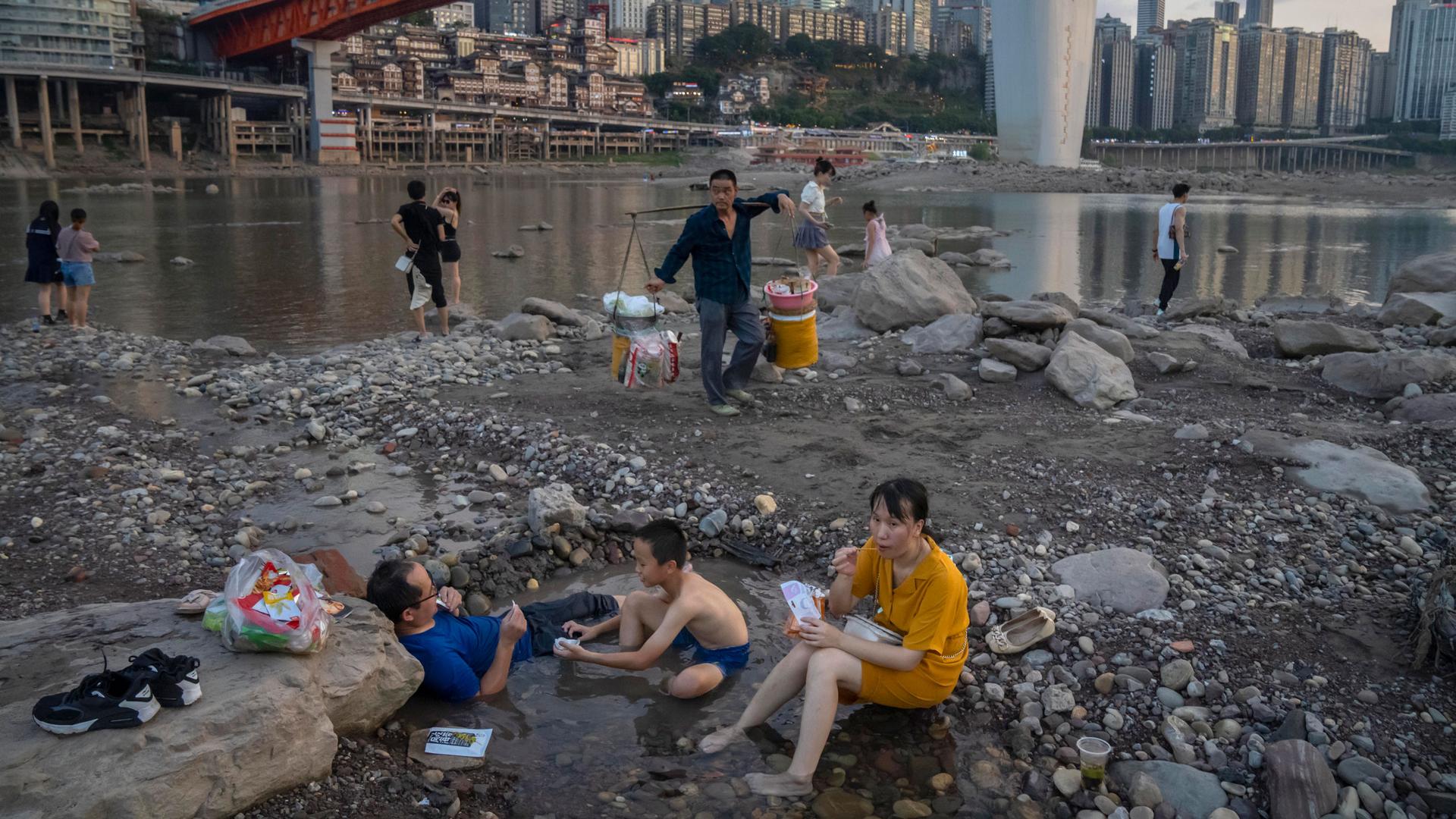People living in the Chinese megacity of Chongqing and surrounding areas have suffered through a summer of power cuts, drought and temperatures topping 113 degrees Fahrenheit.
To make matters worse, a recent rise in COVID-19 cases has meant that people have to stand outside in long lines for mandatory testing.
With air conditioning restricted, public health workers and office workers have been using giant slabs of ice to cool off. The region has endured more than 70 days of sweltering heat, the country’s longest heat wave on record.
In Chongqing — a city of 31 million people — caves and World War II bomb shelters have been transformed into popular spots for people to escape the heat. Supermarkets have also been refuges from the heat, where elderly people have brought their own chairs to camp out in the air conditioning. Some people took to swimming pools to play mahjong. Parents who can afford it moved into hotels so their kids could sleep better at night.
Parts of Chongqing went dark because of power rationing. Videos on social media showed people riding eerily dark subways, lit up only by their bright cell phone screens. In another major city, Chengdu, malls were forced to cut the escalators and air conditioning.
Power shortages shut down many electric vehicle charging stations. A video on social media showed a taxi driver waiting in line to charge his car. “I’ve been waiting for four or five hours,” he said.
The heat and drought have caused other major problems. Last week, Chongqing residents cheered on volunteers fighting forest fires that were spreading through the mountains surrounding the city. Nighttime images of the fires made the mountains look like a bubbling volcano.
Chongqing resident Simeng Shi, who lives nearby, has been monitoring the situation.
“The fire alert is still very high,” she said after the blazes had been extinguished.
“The temperature has lowered, but that doesn’t mean that the fire alert is not there. If the rain does not come, it’s very easy to start a fire again, so everyone is still watching.”
Earlier this week, people were waiting for long-awaited rain.
But now there’s the new concern of flooding. The government has already begun taking action. On Tuesday, more than 100,000 people were evacuated from flooded areas in Sichuan Province.
Experts say that even though China’s record-long heat wave has ended, the effects may be felt for a long time.
The drought has led to hydropower shortages, so now coal usage has gone up. And the government is warning that autumn harvests are under “severe threat” because of the parched landscape.
Scott Moore, a professor at the University of Pennsylvania, who has written books on China’s water policy and sustainable technology, said China might have to look outside the country for certain crops.
“It’s probably going to lead to an increase in imports, particularly of grains and staple crops, which is probably going to place upward pressure on global food prices,” he said.
But he said the biggest takeaway is that this summer should be a wake-up call — not just for China, but for people around the world.
“Whatever we’re doing on climate, it’s not enough and we need to do a lot more and a lot faster,” he said.
“For China, this is a heat wave from hell, right, but this is something we’re facing at less than 2 degrees [Celsius] of warming. We’re currently on track for 4 [degrees], so … think about that.”
That’s a frightening prospect that experts say hasn’t quite sunk in for many people in China.
Related: In the north of Mexico, water cuts to cope with shortages hit poor communities hardest
